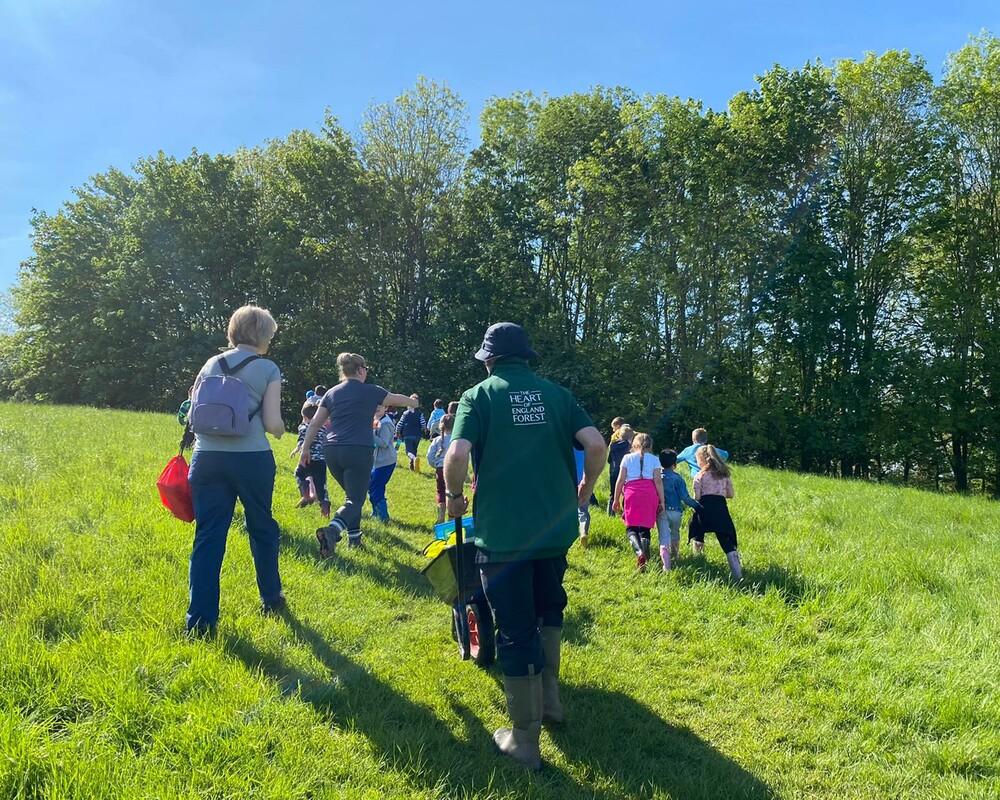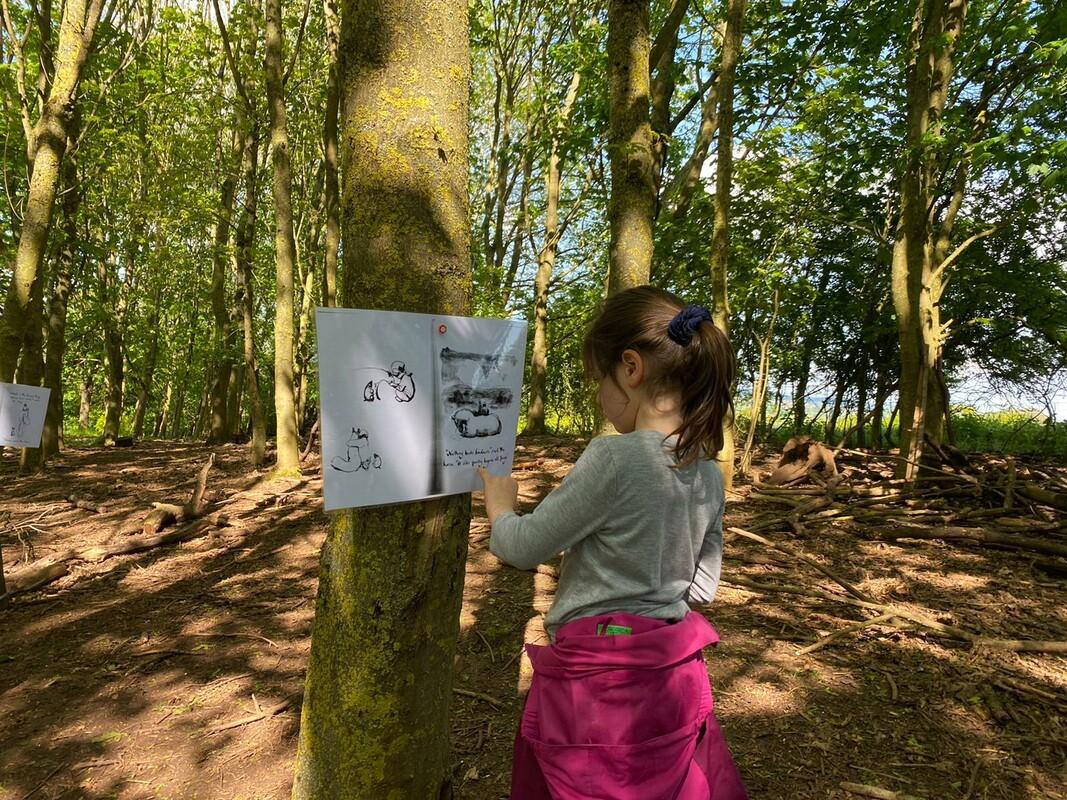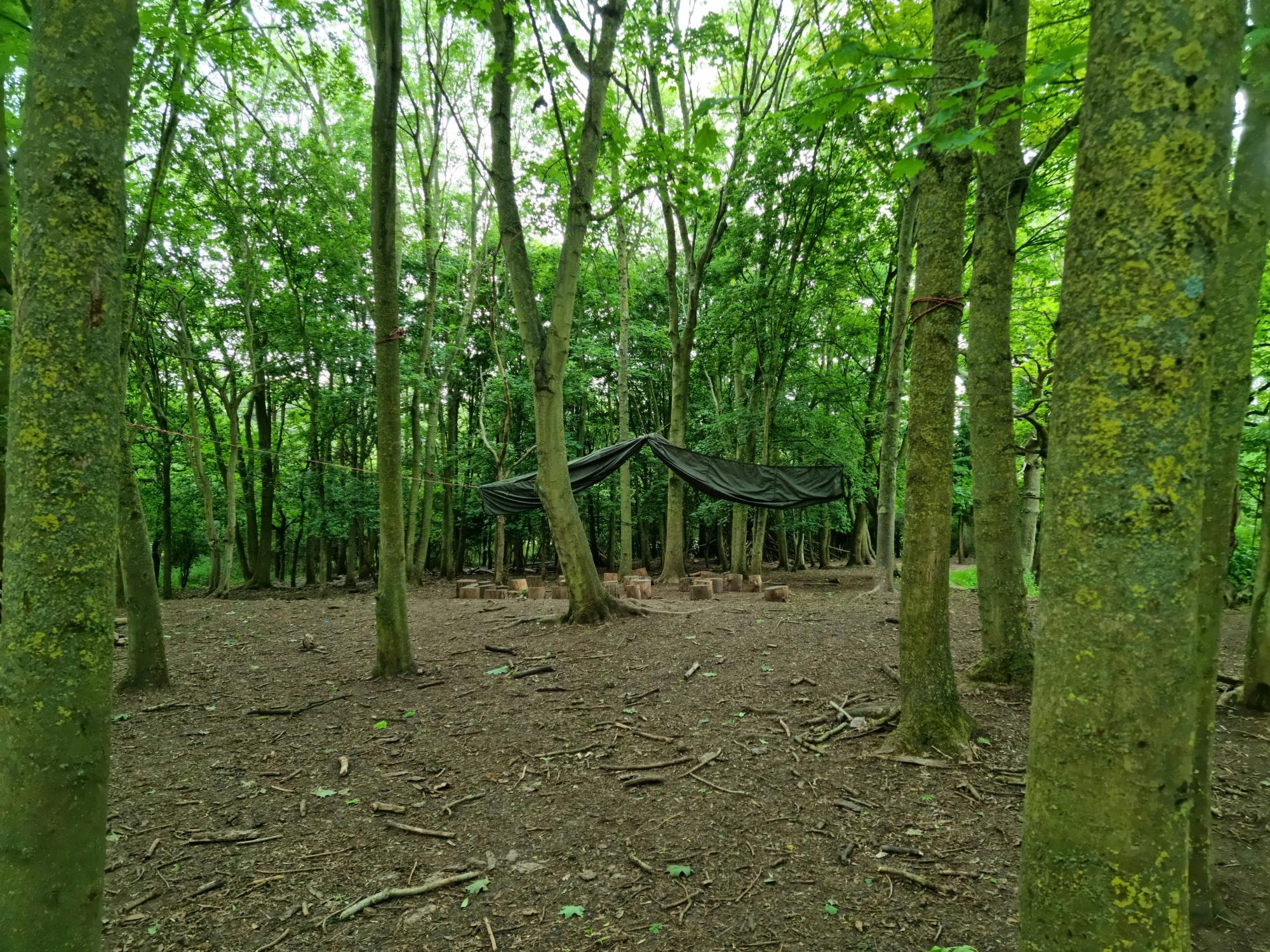
How learning outdoors delivers better outcomes in the classroom
The recent Opportunity for All White Paper in response to the impact on children left by the Covid-19 pandemic released by the Government promises to deliver ‘real action to level up education’ in response to the impact on children left by the Covid-19 pandemic. It undertakes to deliver access to education that meets ‘best standards’ for every child but fails to recognise the potential that outdoor learning can have in helping children to improve their wellbeing, happiness, and academic attainment.*
Learning outside the classroom can help children to thrive in a different environment and has been proven to have a positive impact on both behaviour and academic performance.

Curriculum linked learning in the Forest at Gorcott Hill
When given the opportunity to learn, explore and discover in an outdoor setting through a structured and progressive outdoor learning programme, many children who struggle to thrive in a traditional classroom environment develop greater confidence and form more positive connections with peers and teachers.
This has certainly been our experience delivering formal education programmes in the Forest. Thanks to a grant from the Government’s second round of the Green Recovery Challenge Fund, learning and volunteering opportunities are now available at Gorcott Hill, our new 62-acre site near Redditch. Our ‘Growing Future Forest Guardians’ project is providing practical opportunities for younger generations to learn, volunteer, and forge strong, long-term connections with the natural environment.
By the end of July, we will have had 35 school visits from five local schools for volunteering or curriculum-based learning sessions at Gorcott Hill. The formal learning sessions with primary schools have covered learning about rainforests in comparison to broadleaf temperate forests, habitats, and pollination, along with wellbeing and fun activities such as fire lighting and den building.
"The Heart of England Forest is an incredible resource to have on our doorstep and our children are the future custodians of the forest, consequently it is imperative that they get to visit the forest, learn about it and enjoy getting muddy in it, so they will continue to value it alongside future generations." - Alex Finch, Headteacher, Mappleborough Green C of E Primary School

Benefits for young people with additional needs
Young people with special educational needs and disabilities (SEND), as the White Paper pointed out, have been disproportionately impacted by the disruption to learning from the pandemic. I have seen first-hand how our outdoor learning programmes have helped pupils with additional needs develop a more positive approach to learning and greater personal resilience, which has resulted in better outcomes in the classroom.
Weekly work and volunteering sessions with sixth form students from Vale of Evesham School have included practical conservation tasks such as cutting back shrub, surveys, and creating bird boxes and bug hotels, alongside learning transferable skills such as assessing risk and working together, preparing them for life after school.
Case study: Vale of Evesham School
The Vale of Evesham School is a SEND school, and the 16 and 17 year old students visiting the Forest have a range of additional needs including autism, Down syndrome, and mobility issues.
“The Vale of Evesham School students have been coming to the Heart of England Forest for a few years now. The focus has been work-experience and volunteering opportunities for students with additional needs. Our students have been encouraged, challenged, and engaged by woodland working, and in some cases have shown surprising resilience (particularly when it comes to working in the wet and cold!).
The range of abilities and needs is wide, and the Heart of England Forest team have ensured that the work and volunteering tasks are accessible, meaningful, and stretch the students. The students have opportunities to assess risk and demonstrate safe working in a sometimes challenging environment - these are transferrable skills which help to prepare them for life beyond school. Sometimes the gains seem quite small, but are, in fact, incredibly significant. An example of this is a student who has a very low level of physical fitness, but due to engagement with highly motivating tasks, has managed to spend a morning each week walking up muddy forest trails, moving trip hazards from education sites, and recovering protective tree guards and stakes.
This volunteering placement has allowed this student an opportunity to get a physical workout in a way that they would not engage with in a PE lesson. In the minibus on the way back to school after a session, the students are buzzing with enthusiasm. They are frequently physically exhausted in the afternoon!
The work and volunteering programme at the Heart of England Forest gives students evidence for their CVs and their Duke of Edinburgh Award, as well as providing students with valuable experience of a workplace.” - David Short, 6th Form tutor

Education programmes in the Forest
We offer frequent, continuous, and progressive visits to the Forest, co-designed with schools to deliver school priorities and national curriculum objectives. Find out more about how we partner with schools here.




